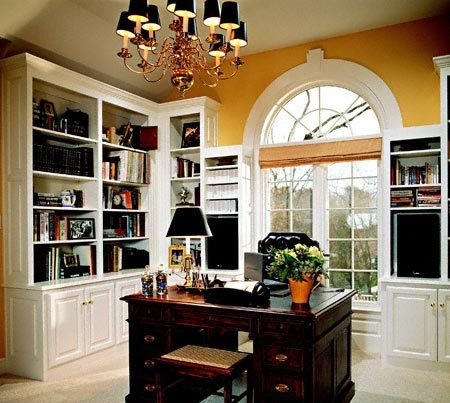How to Replace Your Windows For Next to Nothing
How to Replace Your Windows For Next to Nothing
 To replace or not to replace-that is the question that almost every homeowner asks at one time or another when it comes to windows. However, there’s probably no better time to ask that question than in today’s financial environment, which makes it not only possible but profitable to replace your home’s windows.
To replace or not to replace-that is the question that almost every homeowner asks at one time or another when it comes to windows. However, there’s probably no better time to ask that question than in today’s financial environment, which makes it not only possible but profitable to replace your home’s windows.
In fact, the net cost of replacing your old windows could be next to nothing-it’s simply a matter of doing your homework before you purchase and doing some calculations based on your current utility bills:
1) Choose energy-efficient windows that are eligible for the government’s $1500 energy tax credit. 2) Research your financing options before you buy new windows. 3) Calculate your average monthly utility costs.
Buy Windows that are Eligible for the Energy Tax Credit
The really great news for homeowners this year has been The American Recovery and Reinvestment Act of 2009, which provides federal tax credits for eligible building components that improve energy efficiency. Happily, this includes energy-efficient replacement windows.
In order to meet the eligibility performance criteria, windows (doors and skylights too) must have both a U-Factor equal to or less than 0.30 and a Solar Heat Gain Coefficient (SHGC) equal to or less than 0.30.
By choosing energy-efficient windows, the tax credit is 30% of the amount paid for the product, up to a maximum of $1500 combined for 2009 and 2010. In other words, if you spend $5000 on new windows before December 31, 2010, $1500 goes back into your pocket at tax time! Not bad.
Shop Around for No-interest/No-payment Finance Offers
As a homeowner, you have many options available to you in order to finance your home improvement plans-even if you don’t have the cash on hand to buy your new windows outright. Consider taking advantage of some of the no-interest or no money down financing offers.
These incentives make it easier for you to borrow the money to carry out the improvement while allowing you to use the money you do have for other things. Remember also that you have equity in your home, and that means you can take advantage of financing options that others may not have by using your home as collateral.
Home equity loans and lines of credit, for example, have low interest rates and the interest payments are often tax deductible. Tax deductible options put money back in your pocket so to speak, further reducing the actual cost of the home improvement. So it’s wise to research your options and spend some time with your calculator before you decide how you want to pay for your new windows.
Energy Efficient Windows Mean Savings on Your Monthly Utility Bills
Much has been written about the energy savings you can reap by being energy conscious. They aren’t exaggerating. The statistics bear out the claim. Energy-efficient windows can save a homeowner an average of 25% on monthly utility bills.
According to Energy Star’s savings estimates for a typical home, …

 Many Illinois homeowners find it expensive to replace their home windows. They don’t realize that quality window replacement may save them from paying more on their heating and cooling expenses aside from giving their homes a great exterior appearance. All they need to understand is that replacing it doesn’t always demand a great deal of cash. It may be accomplished with a low budget. Along with regular maintenance, proper fitting offers you a greater chance that your new windows will last for a long time. As the window industry is constantly evolving and considerably growing, you can acquire good quality at affordable prices.
Many Illinois homeowners find it expensive to replace their home windows. They don’t realize that quality window replacement may save them from paying more on their heating and cooling expenses aside from giving their homes a great exterior appearance. All they need to understand is that replacing it doesn’t always demand a great deal of cash. It may be accomplished with a low budget. Along with regular maintenance, proper fitting offers you a greater chance that your new windows will last for a long time. As the window industry is constantly evolving and considerably growing, you can acquire good quality at affordable prices. There are many different types of replacement home windows for the bathroom. If you are remodeling, you have a chance to make a change if that is what you choose to do. You can choose a window that appeals to you more in appearance, or you can focus on energy efficiency. Here are some of the options to look for when choosing windows.
There are many different types of replacement home windows for the bathroom. If you are remodeling, you have a chance to make a change if that is what you choose to do. You can choose a window that appeals to you more in appearance, or you can focus on energy efficiency. Here are some of the options to look for when choosing windows. When winter comes, or simply colder temperatures, one thing many people forget is how the construction and decoration in your home can affect how much of the heat escapes your home. No house is insulated completely, and there’s always going to be a certain amount of heat escaping. Doors and windows are prime locations where hot air can escape allowing the cold in, and in the case of windows, there’s things you can do to help out. Insulating your home by dressing your windows is a good way to keep the interior warmer, whilst lowering your heating bills in the process.
When winter comes, or simply colder temperatures, one thing many people forget is how the construction and decoration in your home can affect how much of the heat escapes your home. No house is insulated completely, and there’s always going to be a certain amount of heat escaping. Doors and windows are prime locations where hot air can escape allowing the cold in, and in the case of windows, there’s things you can do to help out. Insulating your home by dressing your windows is a good way to keep the interior warmer, whilst lowering your heating bills in the process. UPVC windows prove to be one of the most popular choices when completing home improvement projects. In recent years their use has grown immensely and has become one of the most recommended materials used by double glazing installation companies.
UPVC windows prove to be one of the most popular choices when completing home improvement projects. In recent years their use has grown immensely and has become one of the most recommended materials used by double glazing installation companies.

 When it comes to home window repair, you need to identify first the type of repair that you need. Repairing is the act of salvaging something without necessarily replacing it entirely. Window repairs for home are not hard as you thought. Even though there are various types of window shapes, sizes and styles you will discover that the techniques that you use on repairing them are just the same. Modern windows on the other hand might be challenging and complex.
When it comes to home window repair, you need to identify first the type of repair that you need. Repairing is the act of salvaging something without necessarily replacing it entirely. Window repairs for home are not hard as you thought. Even though there are various types of window shapes, sizes and styles you will discover that the techniques that you use on repairing them are just the same. Modern windows on the other hand might be challenging and complex. Home improvement projects have grown by leaps and bounds since information is so readily available in self-help books and online sites. Although that may sound like a threat to the contractors’ business, perhaps it’s the silver lining as someone is bound to mess up. The contractor is then called in to fix the problem and ultimately still makes a buck or two.
Home improvement projects have grown by leaps and bounds since information is so readily available in self-help books and online sites. Although that may sound like a threat to the contractors’ business, perhaps it’s the silver lining as someone is bound to mess up. The contractor is then called in to fix the problem and ultimately still makes a buck or two.